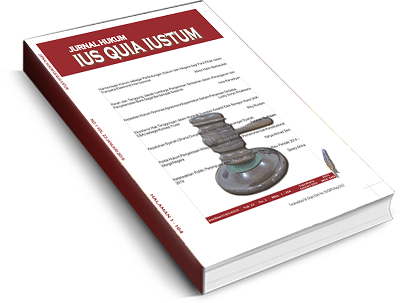Main Article Content
Abstract
This study proposes to address the issue of the effectiveness of the World Trade Organization (WTO) Special and Differential Treatment (S&D) provisions in helping developing countries, in the sense of whether or not the provisions have achieved their ends. To address this issue, the following question will be asked: to what extent have the S&D provisions been effective, both in their implementation in practice by the WTO Members, and in their enforcement in dispute settlement process? Three main legal research methods have been employed for this study, namely ormative and empirical legal studies, and case studies. This study argues that the implementation and enforcement of the S&D provisions have been mostly ineffective. In the implementation, the unenforceability of the S&D provisions has been the most significant contributing factor to their ineffectiveness. In the dispute settlement, factors for the ineffectiveness have been the failure of developing countries to fulfil conditions required by the S&D provisions; the failure of developing countries to submit adequate prima facie evidence to support their claims or defences; and strict and narrow interpretation of the provisions by panels and the Appellate Body.
Key word : Special treatment and different, developing countries, problem solution
Article Details
Authors who publish with this journal agree to the following terms:
a. Authors retain copyright and grant the journal right of first publication with the work simultaneously licensed under a Creative Commons Attribution License that allows others to share the work with an acknowledgement of the work's authorship and initial publication in this journal.
b. Authors are able to enter into separate, additional contractual arrangements for the non-exclusive distribution of the journal's published version of the work (e.g., post it to an institutional repository or publish it in a book), with an acknowledgement of its initial publication in this journal.
